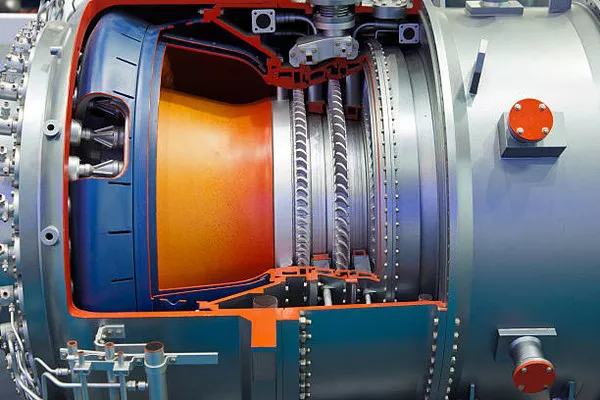The air conditioning compressor is the heart of any HVAC system, playing a crucial role in cooling indoor spaces efficiently. Understanding its lifespan is essential for homeowners and businesses alike, as it directly impacts comfort levels and maintenance costs. In this article, we delve into the factors that influence the longevity of an AC compressor, strategies for maintenance to prolong its lifespan, and signs that indicate it might be time for a replacement.
The Function of an AC Compressor
Before diving into its lifespan, it’s important to understand the function of an AC compressor. The compressor is responsible for circulating refrigerant through the system, compressing it into a high-pressure, high-temperature gas. This gas then flows through the system, releasing heat and cooling the air inside the building. Essentially, the compressor is what makes the cooling process possible.
Factors Influencing Lifespan
Several factors contribute to the lifespan of an AC compressor:
Quality of Installation: Proper installation by qualified technicians is paramount. Incorrect installation can lead to premature wear and tear on the compressor and other components, significantly reducing its lifespan.
Brand and Quality: The brand and quality of the compressor itself play a significant role. Higher-quality compressors from reputable manufacturers tend to last longer and perform more efficiently.
Usage Patterns: How often the AC system is used and the duration of its operation impact the compressor’s lifespan. Continuous operation or frequent cycling can accelerate wear and tear.
Maintenance: Regular maintenance is crucial for the longevity of an AC compressor. Neglecting maintenance tasks such as cleaning coils, changing filters, and inspecting for leaks can lead to premature failure.
Environmental Factors: Environmental conditions such as extreme temperatures, humidity levels, and exposure to debris or corrosive substances can affect the compressor’s performance and lifespan.
Load Matching: Oversized or undersized AC units can put unnecessary strain on the compressor, leading to premature failure. It’s essential to ensure that the size of the unit matches the cooling requirements of the space.
Voltage Fluctuations: Voltage fluctuations or electrical issues can damage the compressor’s motor and other electrical components, shortening its lifespan.
Maintenance Strategies
Proper maintenance is key to extending the lifespan of an AC compressor. Here are some maintenance strategies to consider:
Regular Inspections: Schedule regular inspections by qualified HVAC technicians to identify and address any issues before they escalate.
Clean Condenser Coils: Dirty condenser coils restrict airflow and reduce the compressor’s efficiency. Clean the coils annually to prevent buildup.
Change Filters: Dirty filters can restrict airflow and strain the compressor. Replace air filters regularly according to manufacturer recommendations.
Check Refrigerant Levels: Low refrigerant levels can cause the compressor to work harder, leading to premature failure. Regularly check and replenish refrigerant as needed.
Lubricate Moving Parts: Proper lubrication reduces friction and wear on moving parts, extending the compressor’s lifespan. Ensure all moving parts are adequately lubricated during maintenance.
Inspect for Leaks: Refrigerant leaks can damage the compressor and other components. Regularly inspect the system for leaks and repair them promptly.
Signs of Compressor Failure
Knowing the signs of compressor failure can help you address issues before they escalate. Common signs include:
Warm Air: If the air blowing from the vents is warmer than usual, it could indicate compressor issues.
Strange Noises: Unusual noises such as grinding, rattling, or squealing could signal compressor problems.
Frequent Cycling: If the AC unit frequently turns on and off, it may be struggling to maintain the desired temperature, indicating compressor issues.
Increased Energy Bills: A sudden spike in energy bills without a corresponding increase in usage could indicate compressor inefficiency.
Ice Buildup: Ice buildup on the refrigerant lines or coils can indicate compressor issues such as low refrigerant levels or poor airflow.
Replacement Considerations
If your AC compressor is showing signs of failure or nearing the end of its lifespan, replacement may be necessary. When considering replacement, keep the following in mind:
Age of the System: AC compressors typically last 10-15 years with proper maintenance. If your compressor is nearing this age range and experiencing issues, replacement may be more cost-effective than repairs.
Cost of Repairs: Evaluate the cost of repairs versus the cost of replacement. If repairs are frequent or costly, it may be more economical to invest in a new compressor.
Energy Efficiency: Newer compressors are often more energy-efficient, leading to lower utility bills over time. Consider the long-term energy savings when deciding whether to replace your compressor.
Warranty Coverage: Check if your compressor is still under warranty. Some manufacturers offer warranties that cover compressor replacement within a certain timeframe.
Conclusion
The lifespan of an AC compressor depends on various factors, including installation quality, maintenance, usage patterns, and environmental conditions. By understanding these factors and implementing proper maintenance strategies, you can prolong the life of your compressor and minimize the need for costly repairs or replacements. Stay vigilant for signs of compressor failure and consider replacement when necessary to ensure optimal comfort and efficiency in your indoor space.


